The views in this article are those of the author and not necessarily those of the AFL or its clubs.
The 2019 NAB AFL Draft will be held over two nights on Wednesday and Thursday, with hundreds of hopefuls dreaming of making it to the big time.
This year's top selection is almost certain to be Matt Rowell.
But who is the No.1 pick of all the No.1 picks? Or the No.1 pick of the No.2 selections etc?
Here, AFL national talent ambassador Kevin Sheehan names his best of the best in each of the top 40 draft spots.
No.1 - Luke Hodge (Hawthorn, drafted in 2001/Brisbane)
Hodge gets the nod as the best No.1 selection from another champion of the game, Nick Riewoldt. He finished his career with 346 games, two Norm Smith medals and four premierships and was named a Virgin Australia AFL All Australian on three occasions, including captain in 2010. Hodge also won the Jim Stynes Medal playing in the International Rules Series in 2014.
Riewoldt finished his career with 336 games, a five-time All Australian, won his club's best and fairest on six occasions, however premiership success eluded him. Was also crowned the NAB AFL Rising Star in 2002.
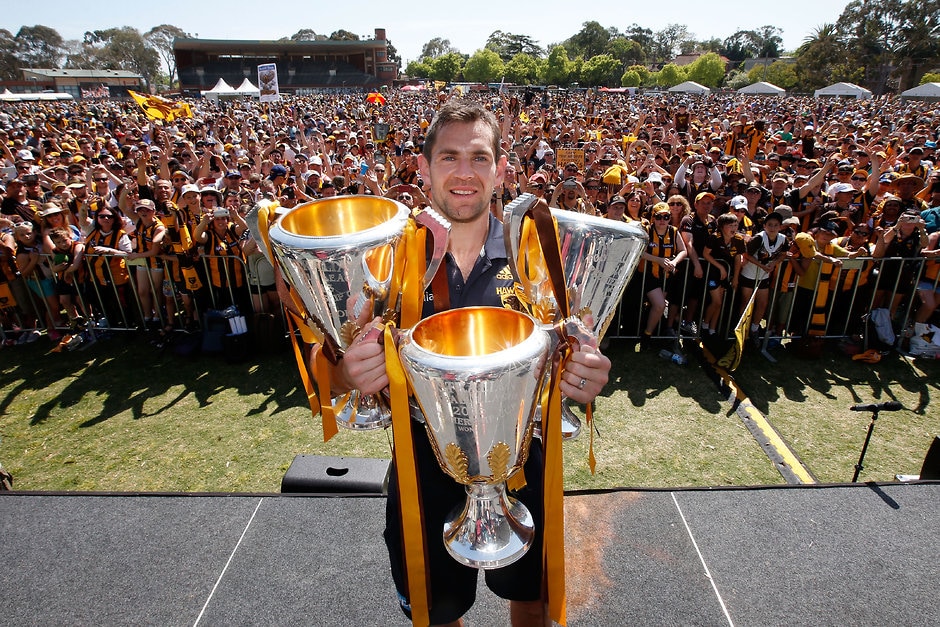
No.2 - Trent Cotchin (Richmond, 2007)
Now a two-time premiership captain and a Brownlow medallist, Cotchin has played 234 games and has been a major contributor in establishing Richmond as a powerhouse club with his leadership and unique talent.
Has beaten an excellent field including Coleman medallist and two-time All Australian Jarryd Roughead (Hawthorn 2004) and a four-time All Australian and triple premiership star Nigel Lappin (Brisbane 1993).
No.3 - Chris Judd (West Coast, 2001/Carlton)
Judd changed the game with his breathtaking acceleration from the centre and was extremely difficult to defend when he first burst on to the scene for West Coast in 2002. Played 279 games, won two Brownlow medals, was six times an All Australian and won five club best and fairest awards and was a premiership captain.
But he certainly now has a challenger emerging with Dustin Martin already on 224 games, two premierships, two Norm Smith medals and a Brownlow as well as being a three-time All Australian putting him in the superstar category.
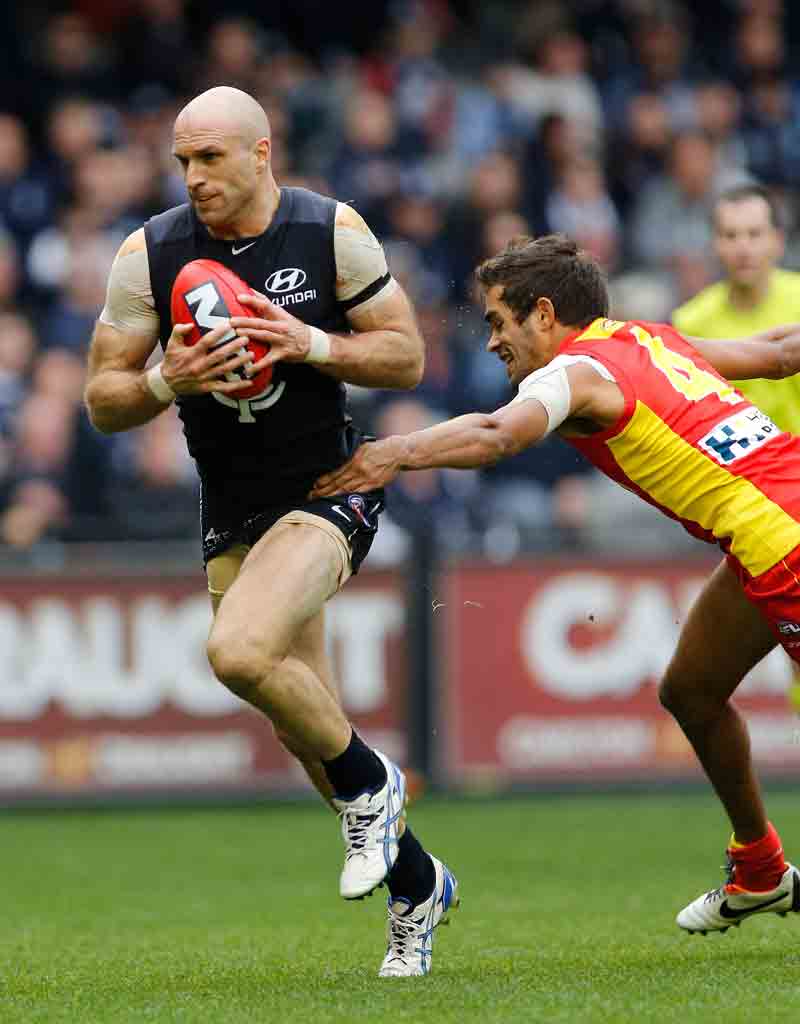
No.4 - Matthew Pavlich (Fremantle, 1999)
A record 353 games (700 goals) with Fremantle and six-time club best and fairest as well as six-time All Australian guarantees him the nod. A true champion of the game.
Hot on his heels was another superstar from the west in Norm Smith medallist Peter Matera, whose 253 games were electric for the Eagles with him being awarded All Australian honours on five occasions.
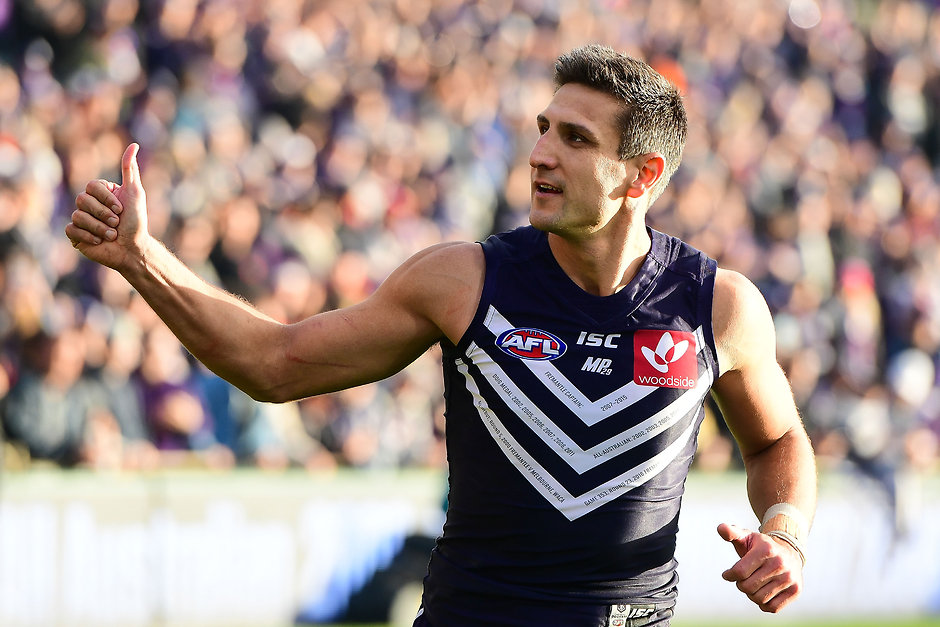
No.5 - Lance Franklin (Hawthorn, 2004/Sydney)
Approaching 1000 goals in the AFL, Franklin is one of the greatest players of the modern era, being chosen as an All Australian on eight occasions including as captain in 2018. A four-time Coleman medallist, he reached his 300th AFL game for Hawthorn and Sydney in the final round of this season.
He eclipses an unlucky Scott Pendlebury (Collingwood 2005) who is also one of the superstars of the modern game and also passed his 300th game late this year. He is a six-time All Australian, won a Norm Smith medal as well taking out Collingwood's Copeland Trophy on five occasions.
No.6 - Jack Macrae (Western Bulldogs, 2012)
An emerging superstar of the game and ball magnet continued to take all before him as one of the game's genuine stars, winning All Australian honours this year and has now played 141 games for the Western Bulldogs including starring in their premiership success in 2016.
Pushes ahead of former Port Adelaide and now Hawthorn forward Chad Wingard, a dual All Australian, as the best selection at this number.
No.7 - Joel Selwood (Geelong, 2006)
One of the best players of this generation, Selwood has now played 295 games for Geelong winning three premierships, being named an All Australian six times (including three as captain), is a three-time best and fairest winner as well as the NAB AFL Rising Star award on the way up.
Gets the nod ahead of another champion from the Lions, Chris Johnson (Indigenous Team of the Century and three-time premiership player) and recently retired Hawthorn/Melbourne star Jordan Lewis (four-time premiership player and 319 games).
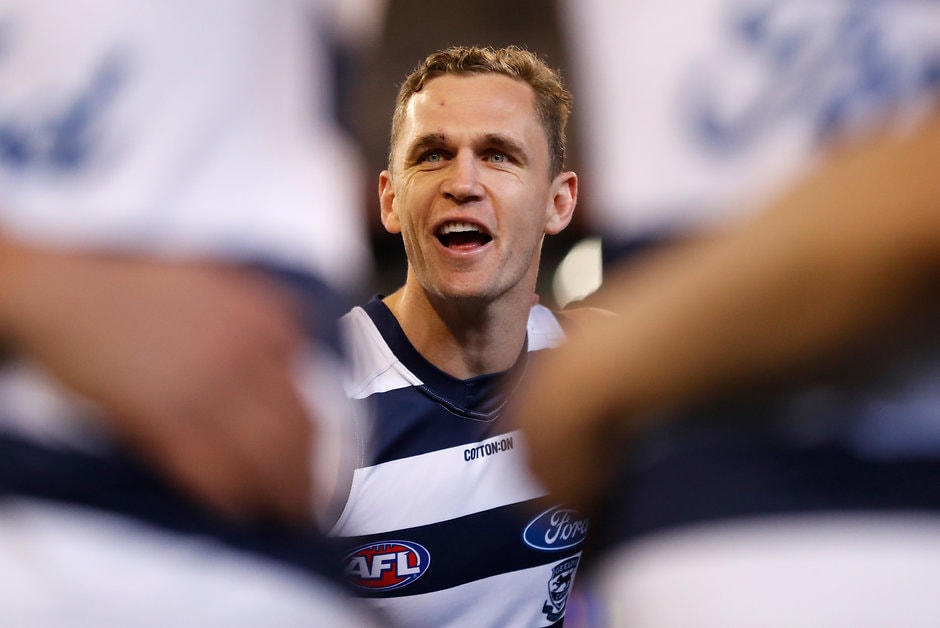
No.8 - Jimmy Bartel (Geelong, 2001)
Playing over 300 games, winning both a Brownlow and a Norm Smith medal is part of the Bartel resume along with three premierships in an outstanding career with Geelong.
Nudges out former teammate Joel Corey (two-time All Australian, dual best and fairest in 276 games for three premierships) and Swans star Jude Bolton (325 games and two premierships) as the best player selected at No.8.
No.9 - Chad Cornes (Port Adelaide, 1997)
Cornes' impressive record continues to make him the most successful No.9, playing 255 games with both a premiership medallion and All Australian honours to his credit.
The likes of current stars Jack Ziebell (2008), Ben McEvoy (2007) and Dion Prestia (2010) still have plenty to play out in their careers and may possibly challenge as the best No.9 in future years.
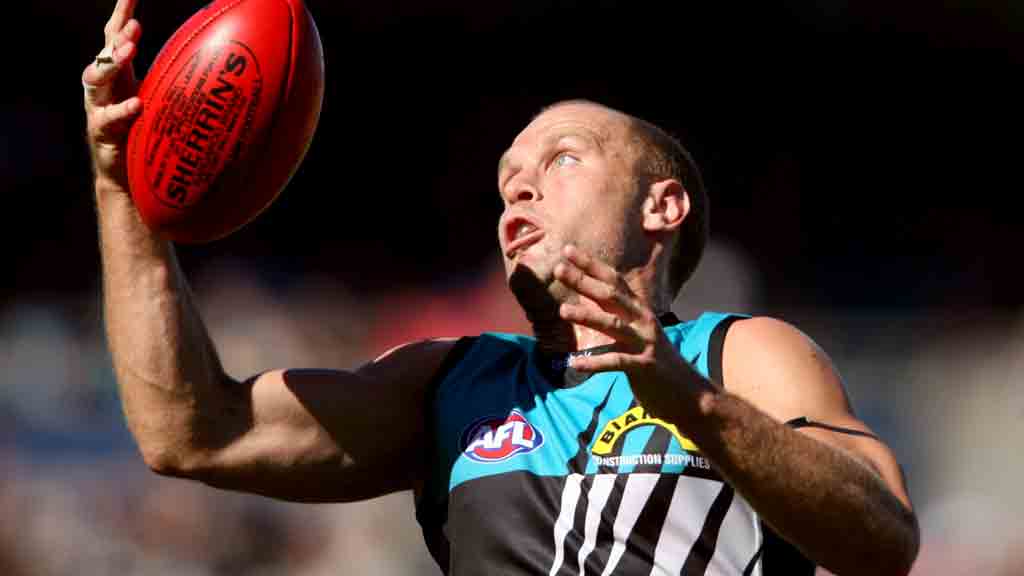
No.10 - Patrick Dangerfield (Adelaide, 2007/Geelong)
The former Crow and now Geelong superstar is the easy call as the best No.10 draft choice of all time. Approaching 250 games with seven All Australian honours, three best and fairest awards and a Brownlow, he continues to epitomise the spectacular game.
Former Western Bulldogs and Richmond star taken at this number in the NAB AFL Draft in 1996 in Nathan Brown was a star in his 219 games, winning All Australian honours on two occasions and was a Jim Stynes medallist in International Rules football.
No.11 - Brad Johnson (Western Bulldogs, 1993)
A six-time All Australian and three-time best and fairest winner who became the club's games record holder with 364 games after being drafted from around the corner at Williamstown/Western Jets, Johnson is an AFL Hall of Famer and obvious selection.
Lenny Hayes, a youngster selected from Pennant Hills in the west of Sydney who became a St Kilda star in 297 games, is a little unlucky to have Johnson selected at the same number five years earlier.
No.12 - Gavin Wanganeen (Essendon, 1989/Port Adelaide)
A playmaker all over the ground who won a Brownlow Medal as a 20-year-old on his way to 300 games, was a five-time All Australian and won two premierships which stamps him as an all-time great and AFL Hall of Fame member.
His selection shouldn't have been debated but also selected at the same number have been two other greats of the game (also Indigenous champions) in Shaun Burgoyne (376 games) and Cyril Rioli (Norm Smith medallist and four-time premiership player) selected in 2000 and 2007, respectively.
No.13 - Shane Crawford (Hawthorn, 1991)
A star onballer who was the running man in a 305-game career which captured a Brownlow Medal, four best and fairest awards and four All Australian honours with a premiership in his last game.
But the No.13 has not been unlucky for all with Nick Dal Santo (322 games and three-time All Australian), Bob Murphy (312 games and All Australian captain) and Jack Riewoldt (262 games, three-time All Australian and three-time Coleman medallist) also in the debate as the best at this number.
No.14 - Adam Simpson (North Melbourne, 1993)
Current West Coast coach wins the nomination for the best-performed player ever selected at 14 for his playing career with the Kangaroos, amassing 306 games, playing in two premierships, winning a club best and fairest and captaining his club before moving into coaching.
A four-time premiership star and 2012 All Australian, Grant Birchall was a great performer in defence in his 248 games for Hawthorn and now Brisbane.
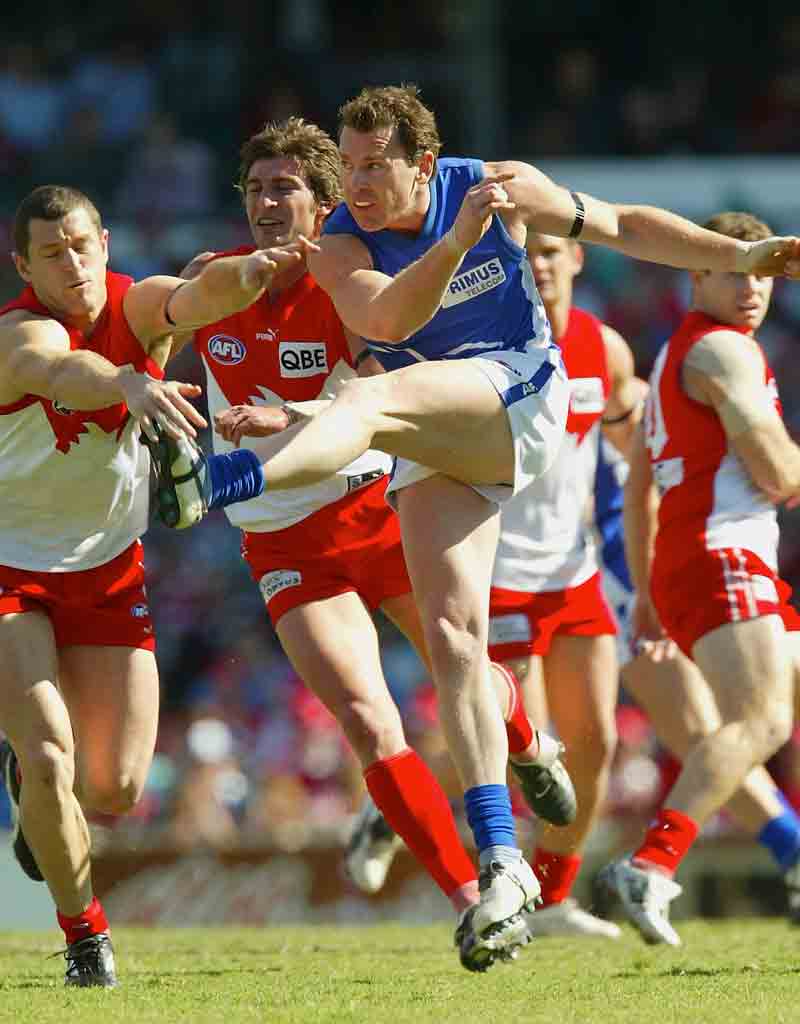
No.15 - Brady Rawlings (North Melbourne, 1998)
North Melbourne drafted a 17-year-old from Devonport in Tasmania in the late 1990s who went on to play 245 games and win three best and fairest awards and he gets the nod as the best player to date at this selection.
In the conversation at this number were a pair of South Australians who became household names with their Victorian clubs in Scott Camporeale (Carlton 1994), who played 252 games with the Blues, and Travis Varcoe (Geelong 2005/Collingwood), who has played 221 games in successful teams.
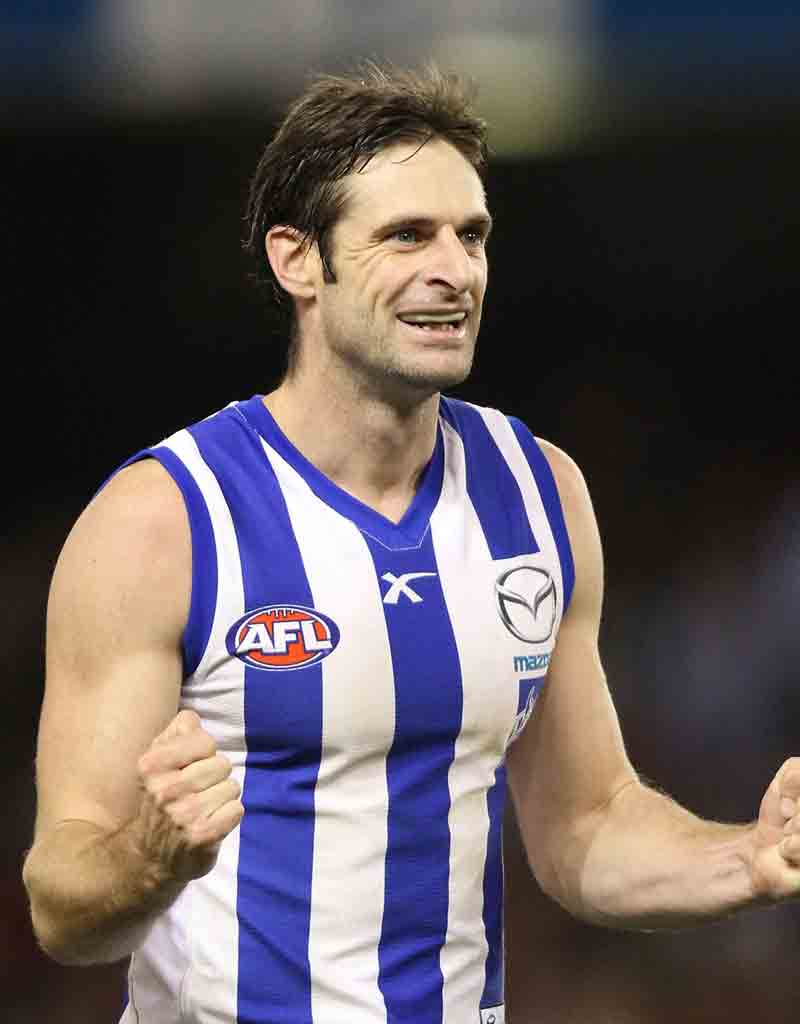
No.16 - Fraser Gehrig (St Kilda, 1993/West Coast)
Drafted from the Murray Bushrangers, Gehrig had a stellar career playing 260 games and kicking 549 goals with St Kilda and West Coast, winning the Coleman Medal on two occasions and was also twice an All Australian.
Also considered was Scott Thompson, a medium midfielder from South Australia selected by Melbourne but ending up returning to the Crows, finishing his great career with 308 games and being named an All Australian in 2012 as well as winning two best and fairest awards with the Crows.
No.17 - Harry Taylor (Geelong, 2007)
Current key defender with Geelong, Taylor gets the nod as he continues his stellar career having played 261 games as one of the best intercept marks of the modern era, been twice named an All Australian and has been an important member of two premierships after being drafted from East Fremantle. Another to win a Jim Stynes Medal representing Australia in International Rules with distinction.
Very much in the conversation at 17 has to be a former teammate at the Cats in James Kelly, who moved to Essendon at the end of his career, retiring with 313 games, a best and fairest and three premierships and also winning a Jim Stynes Medal.
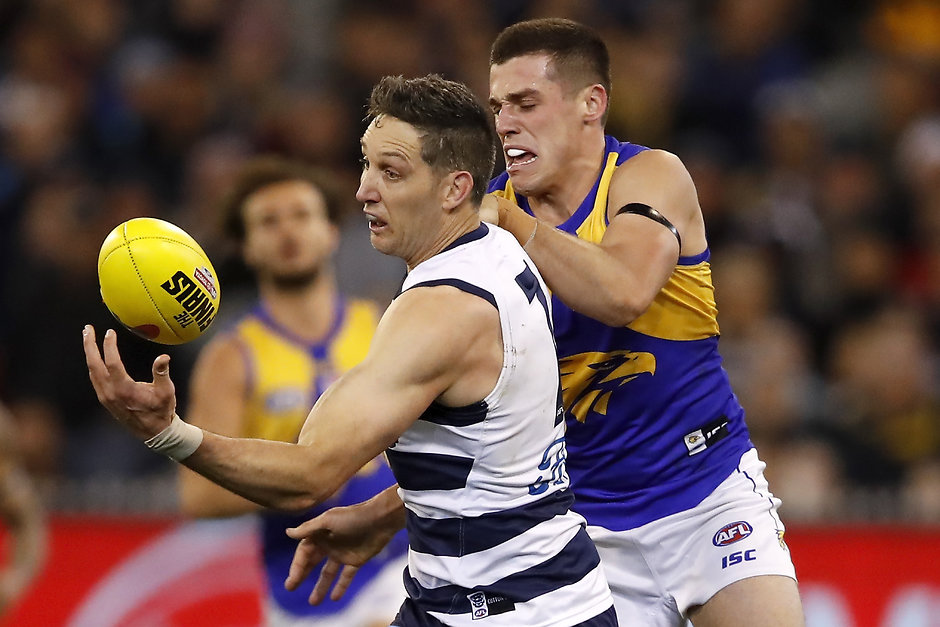
No.18 - Alex Rance (Richmond, 2007)
Another current-day star and key defender from Western Australia earns the gong at 18, having already been named All Australian on five occasions (including once as captain) in his 200 games as well as being a premiership player and best and fairest winner for the Tigers.
There are a few others very worthy at this number with former North Melbourne champion Anthony Stevens (292 games, two best and fairest and twice All Australian) in the mix with Eagles star Luke Shuey (201 games, Norm Smith medallist and best and fairest winner).
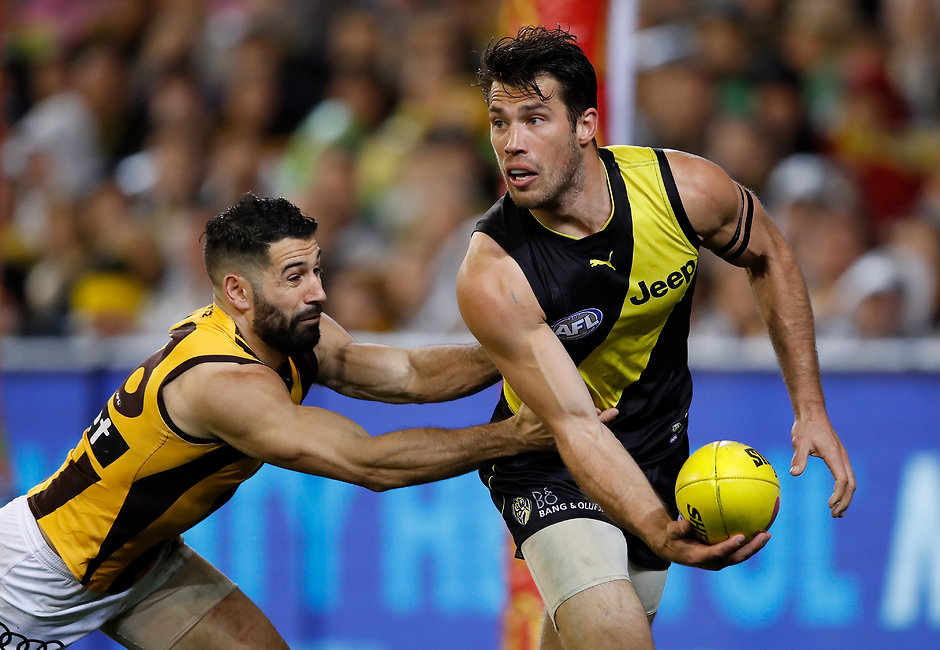
No.19 - Barry Hall (St Kilda, 1995/Sydney/Western Bulldogs)
Powerhouse forward drafted from the Murray Bushrangers at this selection in 1995 ended up inducted into the AFL's Hall of Fame by 2017 after kicking 746 goals in his 289 matches across three clubs, winning All Australian honours on four occasions and twice receiving the Coleman Medal.
Another Murray Bushranger and current Fremantle star who this year passed the 300-game milestone in David Mundy is certainly in the conversation as the best-ever chosen at No.19.
No.20 - Nat Fyfe (Fremantle, 2009)
Drafted from Claremont and one of our current superstars, dual Brownlow medallist Nat Fyfe is the standout performer at this selection having been already a three-time All Australian (including captain this year) and winning his club best and fairest on three occasions in his 173 games to date. He was also a Jim Stynes medallist in 2017.
Port Adelaide's Mr Consistency Kane Cornes had an outstanding career playing 300 games, winning four best and fairest awards and twice named All Australian but it took a superstar in Fyfe to beat him.
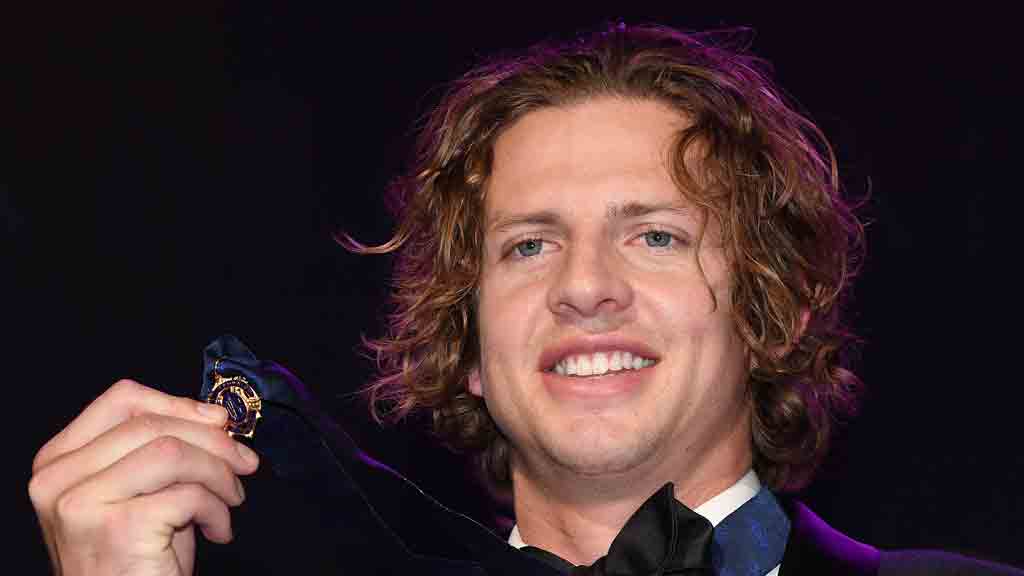
No.21 - Tom Mitchell (Sydney, 2011/Hawthorn)
He may have missed the entire season with injury but what he has achieved in just 111 games is special, making Mitchell the best-ever draftee taken at that number despite the fact his outstanding performances have been at the club he was traded to. A Brownlow Medal win after being runner-up the previous year, along with back-to-back best and fairest awards and dual All Australian selection, means he picks himself.
Fremantle's recently retired small forward Hayden Ballantyne had an excellent career kicking 254 goals in 171 matches including winning All Australian honours in 2014 was a great return but Mitchell gets the nod.
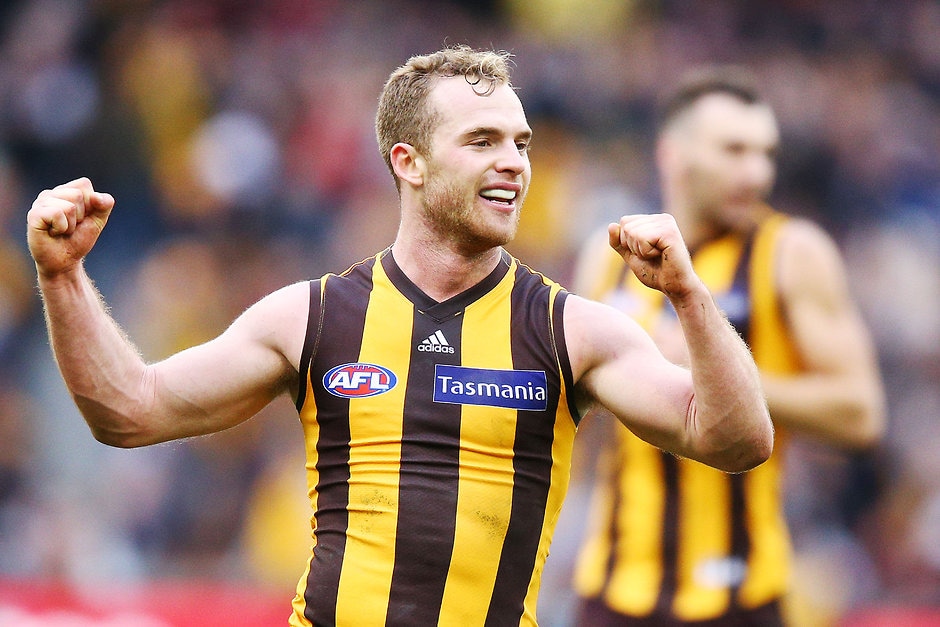
No.22 - Scott Selwood (West Coast, 2007/Geelong)
Another recently retired star hampered by injury in the back half of his career, Selwood is the only player chosen at 22 to win a club best and fairest award, which he did for West Coast in 2012. Finished his career with Geelong, having played 169 games across 11 years.
Emerging Brisbane defender Darcy Gardiner's consistency across 106 games since being drafted from the Geelong Falcons in 2013 may see him considered at this number in the years to come.
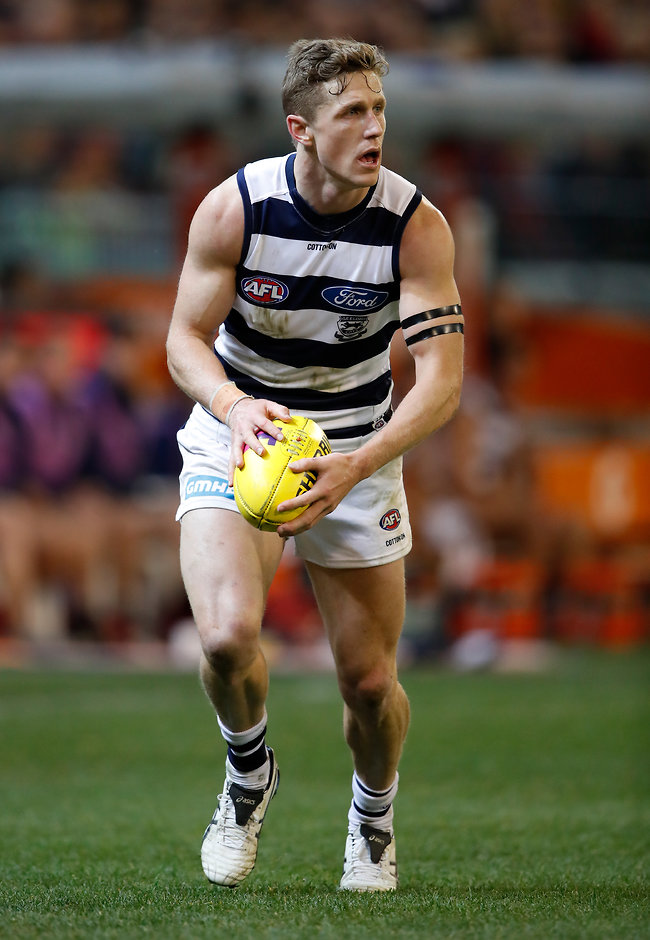
No.23 - Michael Long (Essendon, 1988)
An inspired selection by Essendon after being awarded All Australian honours playing for the Northern Territory in the 1988 Australian National Championships. Long became a trailblazer for Indigenous players in his 190 games for the Bombers, winning the Norm Smith Medal in 1993, being twice both a premiership player and All Australian in the same year.
Former North Melbourne and West Coast big man Drew Petrie (332 games) was another star of the game taken at 23.
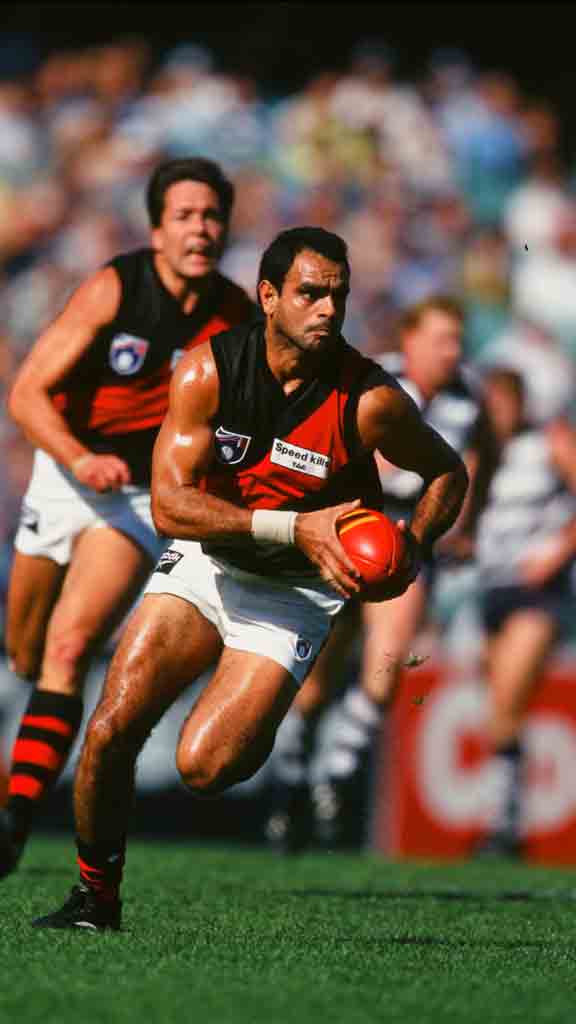
No.24 - Steve Johnson (Geelong, 2001/Greater Western Sydney)
A key reason why the 2001 NAB AFL Draft has been dubbed the 'super draft' was the emergence of the prodigiously talented Stevie J at pick 24. After 293 games, 516 goals, three All Australians and a triple premiership player, winning a Norm Smith Medal in the process, he is considered one of the great entertainers as a mercurial forward.
A teammate of Johnson taken at this same number by Geelong in 1998, David Wojcinski (203 games and three premierships) was another great success story for the Cats in the draft.
No.25 - Seb Ross (St Kilda, 2011)
Now a dual best and fairest winner with the Saints in his 124 games over seven seasons, Ross is now one of the most prolific ball-winners in the game.
He wins the nomination in a close call over an ultra-consistent midfielder from Jack Redden, the Lion-turned-Eagle now with over 200 matches at AFL level and a premiership with West Coast.
Seb Ross with a beauty!#AFLSaintsDees pic.twitter.com/qbuJddeODW
— AFL (@AFL) July 27, 2019
No.26 - Shane Edwards (Richmond, 2006)
Dual premiership player with the Tigers and an All Australian in 2018, he is maybe only now getting the recognition he deserves as a star of the game across a career now surpassing 250 games. Edwards has excelled in multiple roles for the AFL's premier team.
In my view he is ahead of a stellar group of candidates selected in this draft number in West Coast's Jack Darling (196 games, 378 goals), Essendon's dual best and fairest winner Zach Merrett (126 games), along with former Hawthorn star Darren Pritchard (211 games, three premierships) who was selected at 26 in the inaugural draft of 1986.
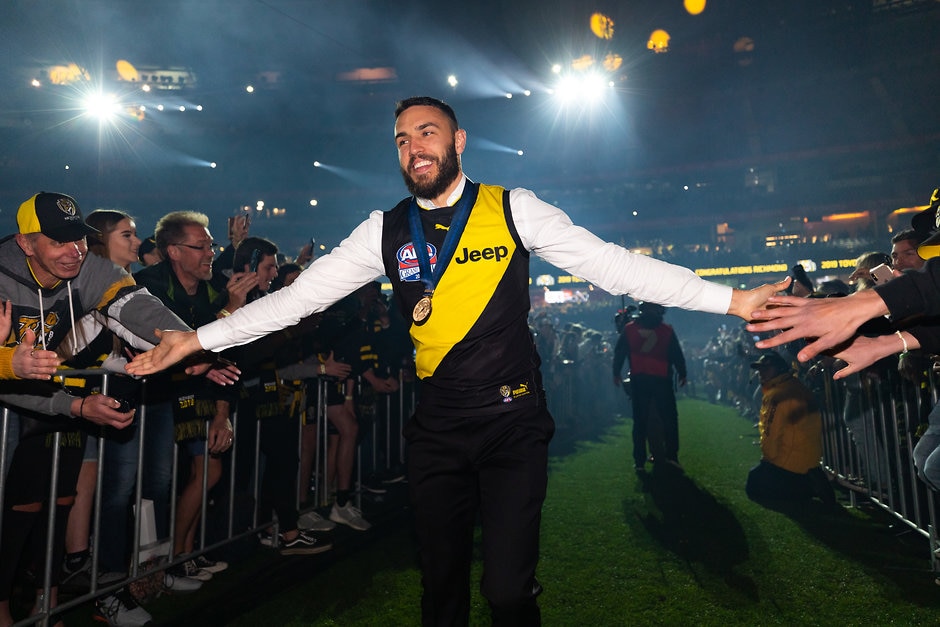
No.27 - Ted Richards (Essendon, 2000/Sydney)
Initially selected by Essendon it wasn't until he moved to the Harbour City that Richards blossomed as a star defender playing 261 matches including in a premiership with the Swans in 2012 and winning All Australian honours the same year.
Another contender selected at this number in the second draft in 1987 was Richmond key forward Brendon Gale (244 games) who is having an even bigger impact with the Tigers as its CEO.
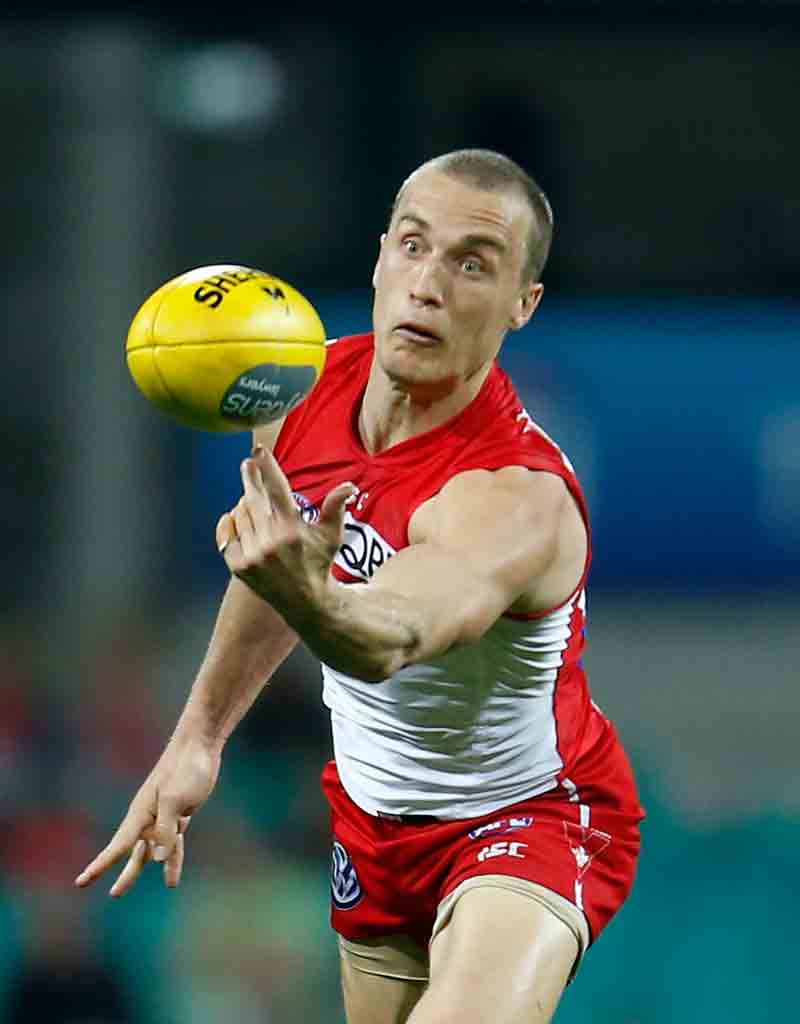
No.28 - Jason Johnson (Essendon, 1996)
A best and fairest winner and All Australian, Johnson played 184 games with Essendon and gets the nod ahead of one of Geelong's current midfield stars in Mitch Duncan, with 203 games and a premiership under his belt as the best performed at No.28.
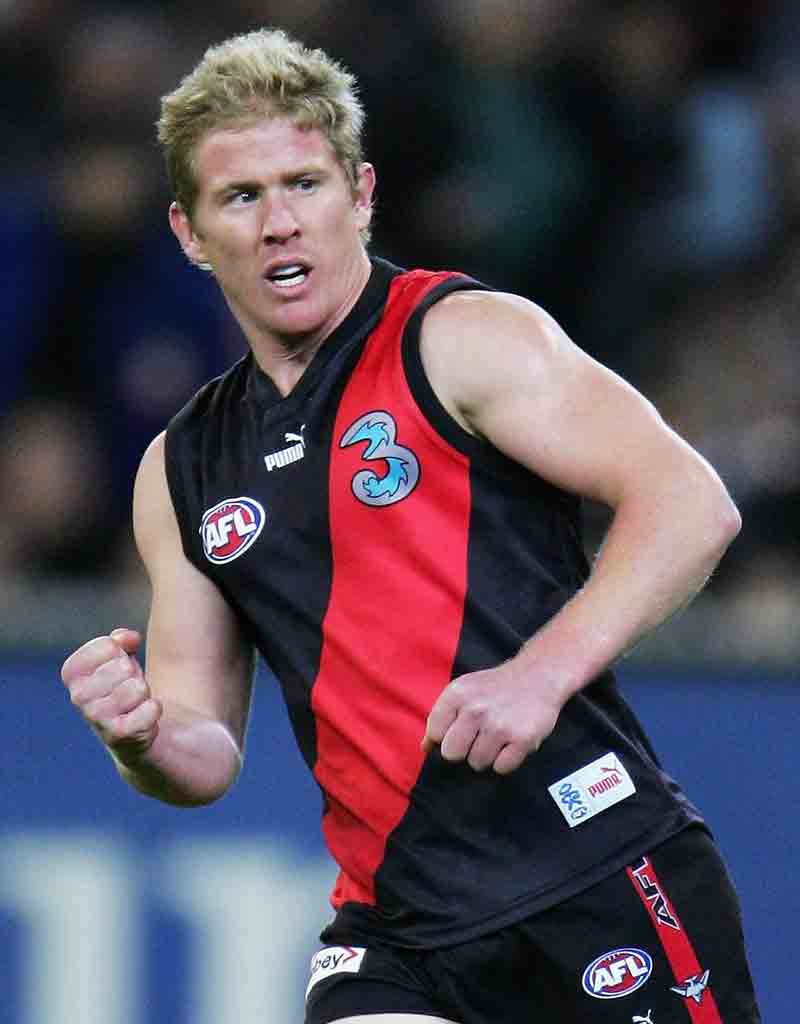
No.29 - Wayne Campbell (Richmond, 1989)
Four-time best and fairest winner and a dual All Australian in 297 games with Richmond was the final return for Campbell, who also captained his club in an outstanding career.
A contender was current Hawthorn forward Jack Gunston with three premierships, an All Australian and 195 games on the board. He was taken initially by Adelaide in 2009.
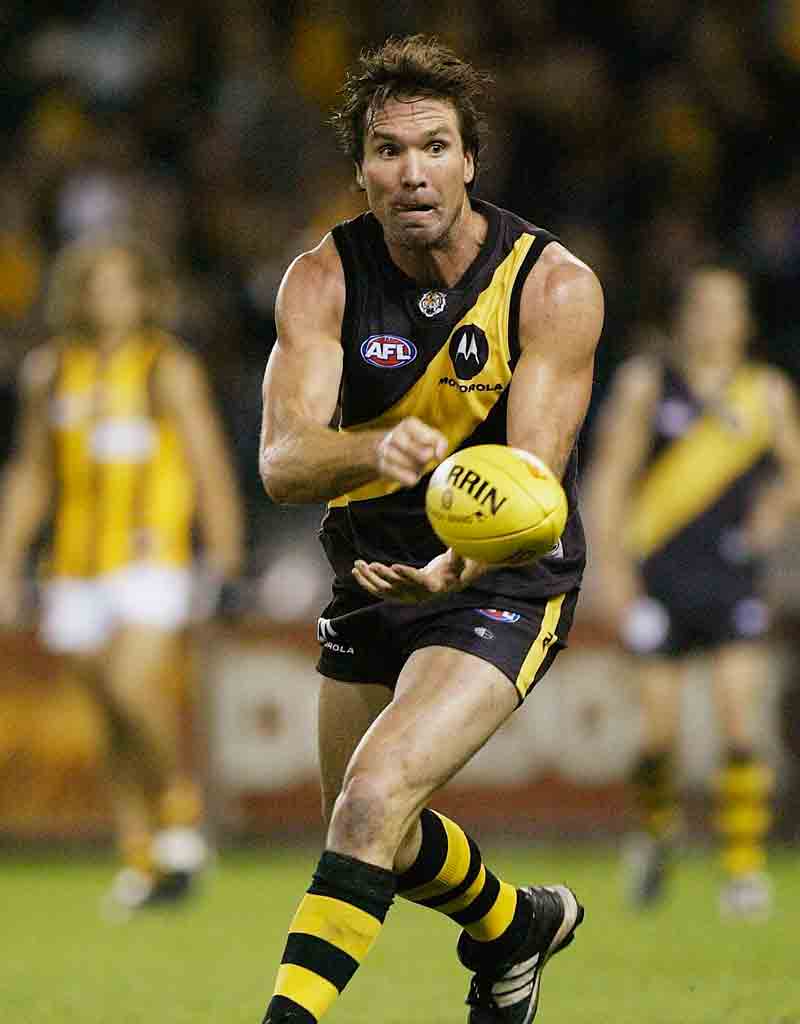
No.30 - Jonathan Brown (Brisbane, 1999)
The father/son selection became a superstar for Brisbane including in their premierships in 2001, 2002 and 2003. Played 256 games, won three best and fairest awards, was twice named All Australian and won a Coleman Medal to clearly be the best performed player selected at No.30.
No.31 - Simon Black (Brisbane, 1997)
With three premierships, a Brownlow Medal and a Norm Smith Medal, Black played 322 games with the Lions and was adjudged the best ever player selected at 31.
Hot on his heels was another Norm Smith medallist and triple premiership player in Paul Chapman (280 games – Geelong/Essendon).
No.32 - Bernie Vince (Adelaide, 2005/Melbourne)
The youngster from the Yorke Peninsula in South Australia drafted at this selection to Adelaide before being traded to Melbourne finished his career with 229 games, winning a best and fairest at both clubs – enough to ensure him our nomination as the best No.32.
With 331 goals in his 265 games for the Bulldogs, Daniel Giansiracusa was a local youngster from the Western Jets who found his draft home around the corner, becoming a household name and a contender.
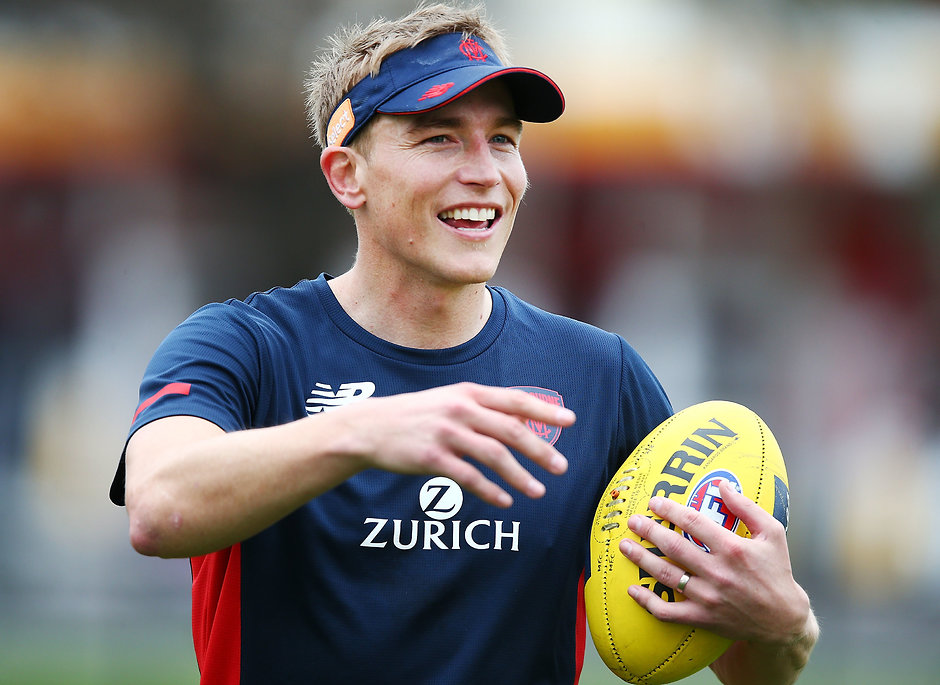
No.33 - Craig Bolton (Brisbane, 1998/Sydney)
Drafted to Brisbane after learning the game in the ACT, Bolton was a dual All Australian and premiership player when he shifted to Sydney, becoming a diligent key defender in 199 games at AFL level.
Shaun Hart, a teammate of Bolton for a short period at the Lions, the 2001 Norm Smith medallist and triple premiership player in 273 games was certainly in the debate as the best-performed at this pick.
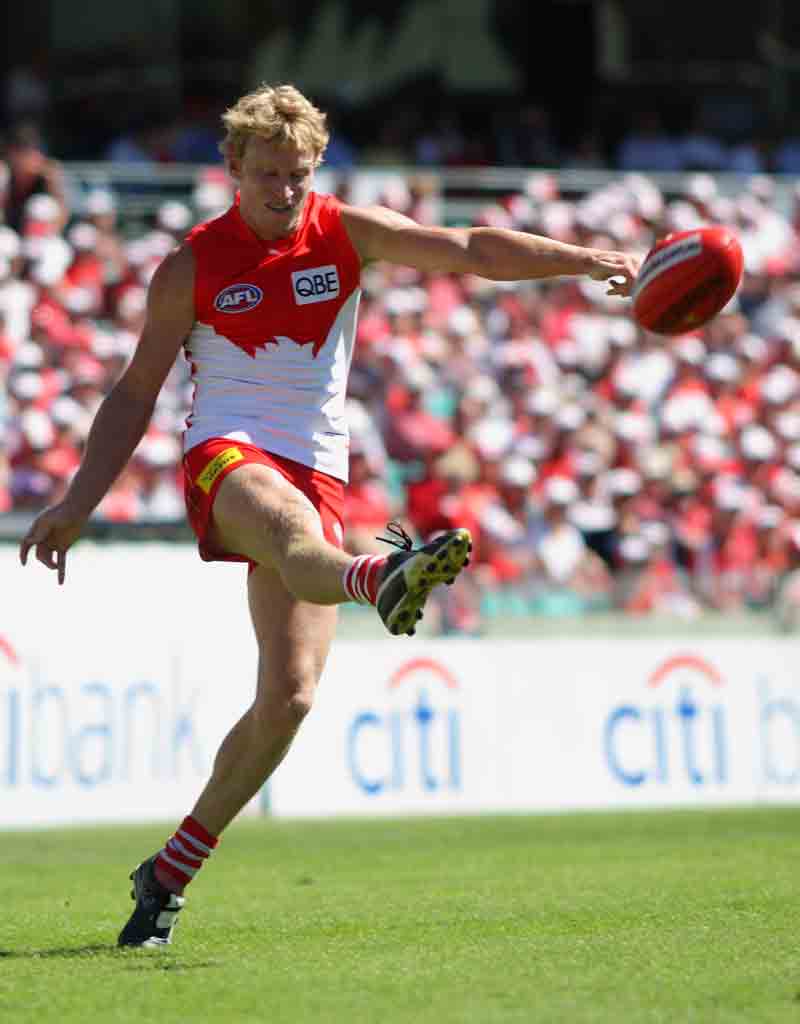
No.34 - Max Gawn (Melbourne, 2009)
The giant Melbourne ruckman has come of age in the last few seasons, winning back-to-back club best and fairest awards and is now a three-time All Australian in just 120 games.
His influence on matches now, in my view, has him ahead of other contenders including the well-performed Swans midfielder Daryn Cresswell (244 games) and Collingwood's electric small Leon Davis (225 games).
Max Gawn goes THWACK! #AFLDeesDons pic.twitter.com/z48rWBklmQ
— AFL (@AFL) April 5, 2019
No.35 - David Astbury (Richmond, 2009)
Now a dual premiership player, key defender Astbury has become a pillar for the Tigers in his 129 games after being drafted from the GWV Rebels.
Chris Bond, a consistent ball-winner who was drafted to Carlton in 1989 before playing with both Richmond and Fremantle, was also a worthy contender after finishing his career with 163 games.
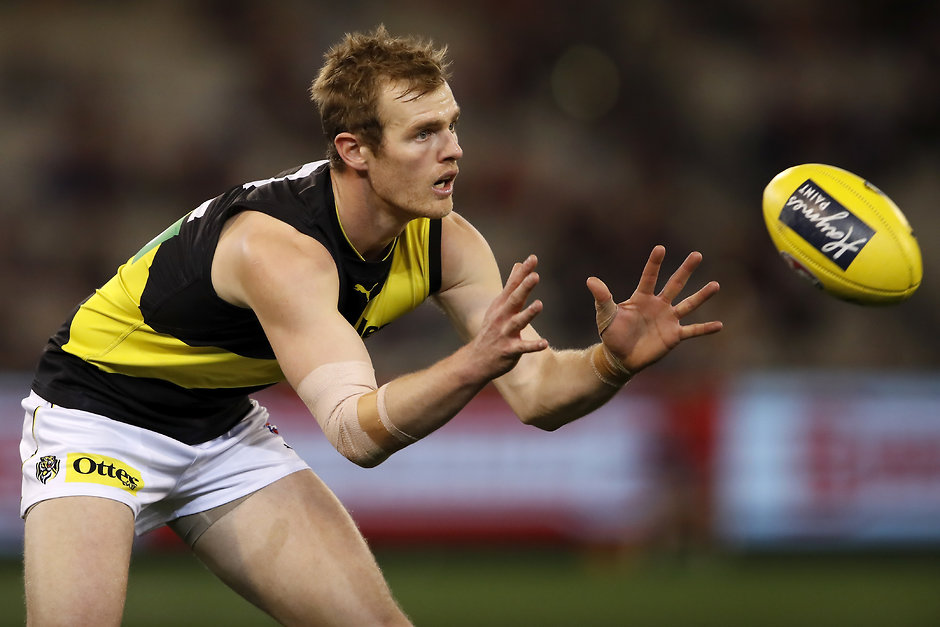
No.36 - Sam Mitchell (Hawthorn, 2001/West Coast)
The absolute standout at this choice was overlooked numerous times in the NAB AFL Draft before Hawthorn selected him from their aligned VFL side, the Box Hill Hawks, in 2001. A four-time premiership player, five-time best and fairest winner and three-time All Australian, Mitchell also won the Brownlow Medal and NAB AFL Rising Star award in one of the game's most decorated careers. He stands alone as the best No.36.
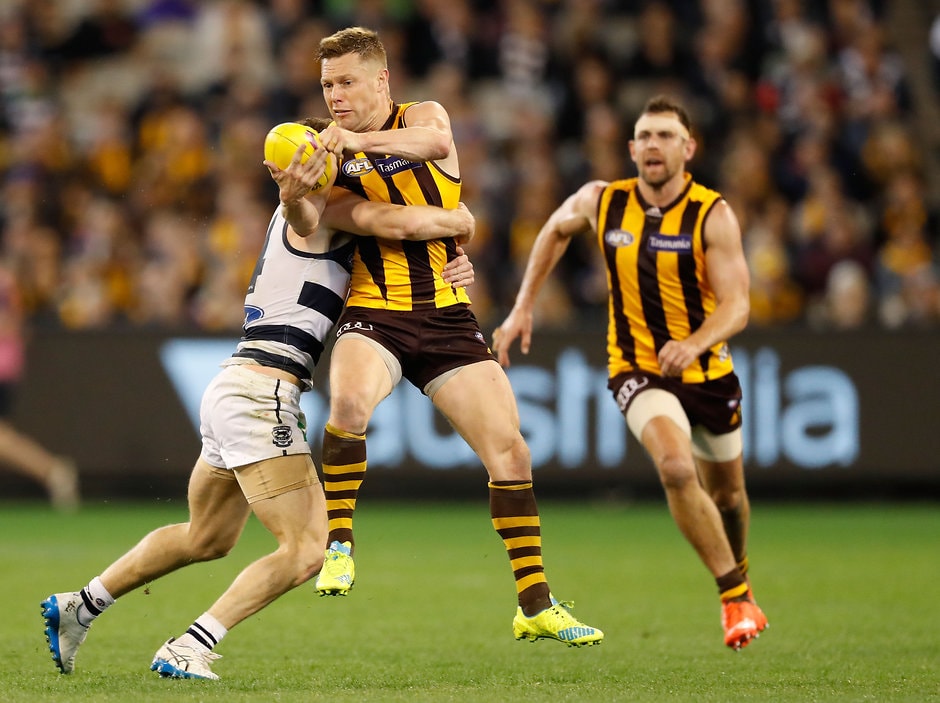
No.37 - Leigh Montagna (St Kilda, 2001)
Twice All Australian and with 287 games with St Kilda, the speedy midfielder/defender was judged ahead of West Coast star Mark LeCras, whose 441 goals in 219 games and All Australian honours in 2010 made him a very worthy contender.
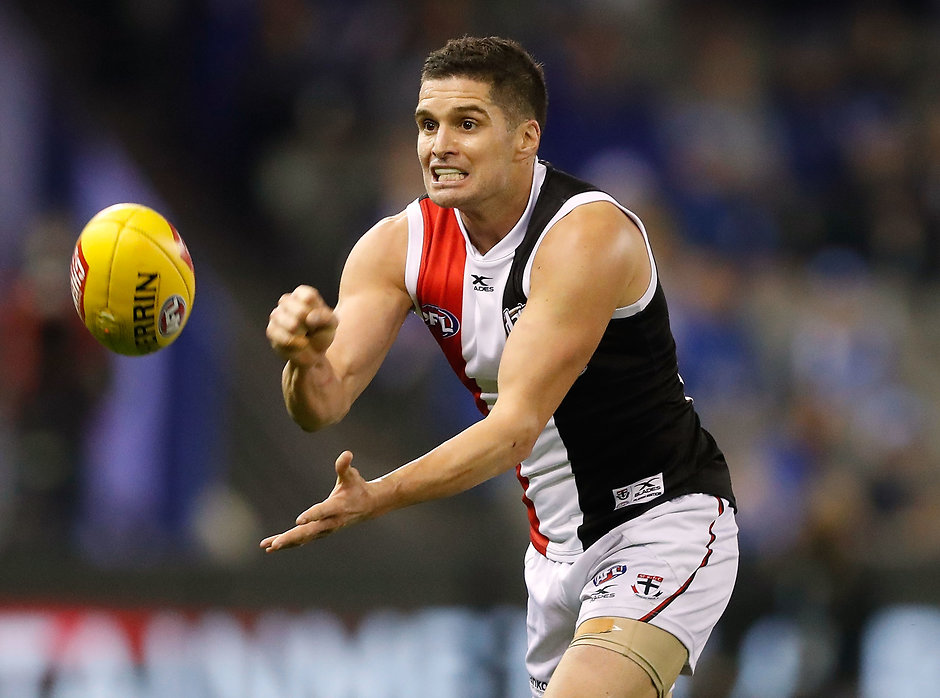
No.38 - Cameron Ling (Geelong, 1999)
Overlooked in the draft the previous year, Ling became a triple premiership player (one as captain) in 246 games as well as earning All Australian honours and winning a club best and fairest award. He is rated just above Brendan Fevola, a dual Coleman medallist in 204 games with 623 goals for Carlton and Brisbane.
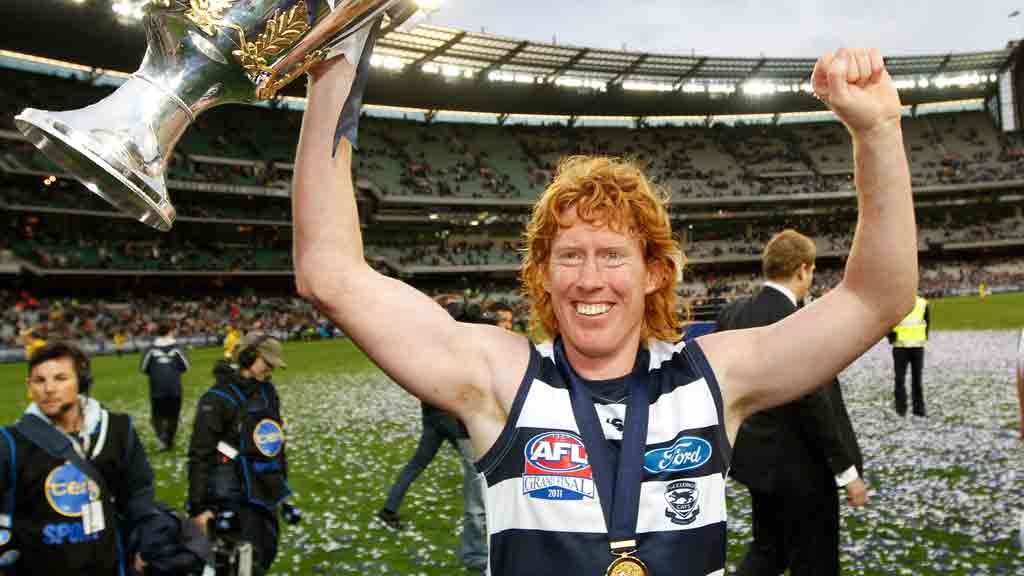
No.39 - Travis Cloke (Collingwood, 2004/Western Bulldogs)
A premiership player with Collingwood and a two-time All Australian, Cloke finished with 256 games and 452 goals, also winning Collingwood's best and fairest award to be a clear winner as the best-performed draftee selected at 39.
No.40 - Gary Ablett jnr (Geelong, 2001/Gold Coast/Geelong)
The undisputed best at this draft number is arguably the best to play the game. Currently with 345 games, two Brownlows, eight All Australians, six club best and fairests and two premierships
The Swans have shown you can pick champions at No.40 with two of their superstars in Mick O'Loughlin (303 games, 521 goals) and Luke Parker (195 games and All Australian) both taken at this number.
Gary Ablett appreciation tweet.#AFLNorthCats pic.twitter.com/GRF9seySQ4
— AFL (@AFL) May 12, 2019


